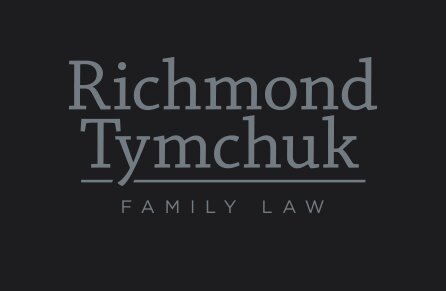Your first tax season after separation…
If this is your first tax filing since separating or getting divorced, you might not be aware of the different claims and benefits that could be available to you. Read on to learn a bit more about the different ways you can maximize your tax savings — and avoid signing away future dollars.
First, it’s important to note that you need to report changes in your marital status to CRA. The Canada Revenue Agency will need to know the date of your separation and any other changes in your marital status. When you report the change, these can impact your filing and more importantly your child benefits, and you’ll want to consult with your tax accountant on these issues.
In our latest webinar, we spoke with Sharon Numerow from Alberta Divorce Finances and Calgary’s Choice Tax Services, an expert in tax preparation for taxpayers who are separated or divorced. She shared guidance and answered common tax questions for those going through a divorce or legal separation. Here’s what she shared with us.
“Separated” is Different in Family Law vs. the CRA
“One of the crucial things to understand is that the definition of separated is different in the income tax act than how family law defines it,” Sharon explained.
She goes on to elaborate, “According to family law, you can be separated and still be living in the same household. But the income tax act says that you’ve separated when you start living separate and apart from your spouse or common-law partner because of a breakdown in the relationship.
CRA Wants to Hear About it AFTER 90 Days
The effective day of your separated status for the CRA is the day you started living separate and apart. However, CRA doesn’t want to know about it for 90 days after separation.”
Maybe they’re optimistic about your relationship or more likely they don’t want to do the paperwork for couples who reconcile. Either way, they want you to give it some time because if you do get back together with your partner it can impact any benefits that you may have started to receive as a result of being separated.
Sharon cautions that “if you get back together or move in with someone else and do not notify CRA, they will figure out the real story and you will have to pay back any benefits you collected that you were no longer entitled to.”
Child Custody Definitions
Claiming a child for the eligible dependent isn’t as straightforward as you would think. Family law considers parenting as shared when each parent has the children at least 40% of the time or more.
On the other hand, CRA says shared custody is:
- Parents are living in separate residences;
- Parents are living with the child(ren) on an approximately equal or near-equal basis; and
- Parents are each primarily responsible for the child’s care and upbringing when living with the child.
However, even if you have shared custody that doesn’t mean you can claim a child as a dependent on your tax return.
Generally, if you are required to make child support payments to a current or former spouse or common-law partner for a child, you cannot claim an amount for an eligible dependant on line 30400 for that child.
~ CRA
An exception to this rule was passed in 2007, to allow parents who shared parenting time of their children, and who each pay child support to the other, and assuming parents can agree on which parent will claim which child, then each parent can claim one child for this credit; of course, a parent must be single in order to do so.
A parent can only claim one child on their tax return for the eligible dependent credit, and if there is only one child you can agree on who that is, or alternate each year. Understanding this and getting it clear early on in your separation or divorce agreement can help reduce conflict when it’s tax time.
Understanding How You Are Taxed
Alberta used to be the only province in the country that had a provincial flat-rate tax system so everyone paid 10%. Now Alberta has a progressive tax system just like all the other provinces and the federal government. You pay tax to the federal government and to the provincial government. Your tax preparer will show you the cumulative total and the federal government will disseminate it to the provinces.
The first part of what you earn, you don’t pay any tax on it at all. The federal limit is just over $13,000 and the provincial limit for Alberta is just over $19,000 so you don’t pay tax on income up to that amount. The following are the combined federal/provincial tax rates based on taxable income for an Alberta resident. Although the lowest tax bracket says $0 to $48,535, you actually don’t pay taxes on that first part of your earnings up until the limits by the federal or provincial governments.
Tax Rates for 2020 Tax Year
| Income Range | Tax Rate |
| $0 to $48,535 | 25% |
| To $97,069 | 30.5% |
| To $131,220 | 36% |
| To $150,473 | 38% |
| To $157,464 | 41% |
| To $209,952 | 42% |
| To $214,369 | 43% |
| To $314,928 | 47% |
| > $314,928 | 48% |
Tax Deductions vs. Tax Credits
Two things happen on your tax return: you add up all your income and then you figure out if you have any tax deductions which determines your taxable income or the amount of income you will pay tax on; then you determine which credits you are eligible for and those reduce the income tax you will pay. But what is the difference between tax deductions and tax credits?
Tax Deductions
Tax deductions—legal expenses, RRSP contributions, spousal support payment (as the payor) and child care expenses—are all deductions you can claim that reduce the income you are taxed on.
Tax Credits
“A non-refundable tax credit reduces the tax you have to pay, or increases your refund, depending on your situation. They have nothing to do with your marginal tax rate per se.” Common tax credits include medical expenses, tuition (federally – no longer in Alberta), donations and claiming an eligible dependent.
Sharon shared an example: If you owe $20,000 in taxes and you claim the Eligible Dependent Tax Credit, which is worth approximately $3,800 to an Alberta resident, you now owe $20,000 minus $3,800, which is $16,200.
It’s important to note that you need to have income and owe taxes for non-refundable tax credits to have an impact. This includes getting the credit for an eligible dependent. So if you don’t have any income or your income is, for example, $12,000, those tax credits won’t benefit you.
When Can You Claim an Eligible Dependent Tax Credit?
In order to claim the Eligible Dependent Tax Credit, the following must apply:
- You must be a single parent
- You support a qualified dependent in your home
- The child lives with the parent most of the year, which includes if they are away at school
- Generally, the child must be under 19 years of age or older if they have a disability
- You can only claim one child for this credit
- You are not making child support payments for the child unless in a shared arrangement (Subsection 118(5.1) exception exacted in 2007)
Sharon clarifies that “in a situation where one parent is the primary, the parent who does not have primary care and who is paying child support, cannot—no matter if you have two children or sixteen—can ever claim a child for this credit on their tax return.”
If the higher earner is the only one paying the setoff child support payment, the parent who pays would be ineligible to receive the credit for claiming a child as an eligible dependent. If you both pay each other, this should be set out in your legal agreement and as per the Tax Court, you should have evidence of the transfer of payment to each other to claim a child.
When creating an agreement, your family law lawyer should recommend you get independent tax advice to make sure there are no inaccurate statements that will hurt your financial or tax situation.
Additional Tax Items to Consider
- Extraordinary Expense Sharing: When calculating each parent’s share of a particular extraordinary expense it is important to share the after-tax cost.
- Canada Child Benefits: CRA determines this benefit, and cannot be overwritten by your separation agreement. Use the Canada child benefits calculator to determine how much you may be able to get and how much your payments may be.
Get Expert Advice
The right family lawyer should advise you to get tax advice so you can make the choices that will get you the best settlement for your situation. Learn more about our separation agreement services and contact us to discuss your options.
We recommend you always discuss your situation with a reputable tax advisor, such as Sharon at Alberta Divorce Finances, for advice on your unique tax situation. Contact Sharon on LinkedIn or Twitter to review your finances related to your divorce or separation.


